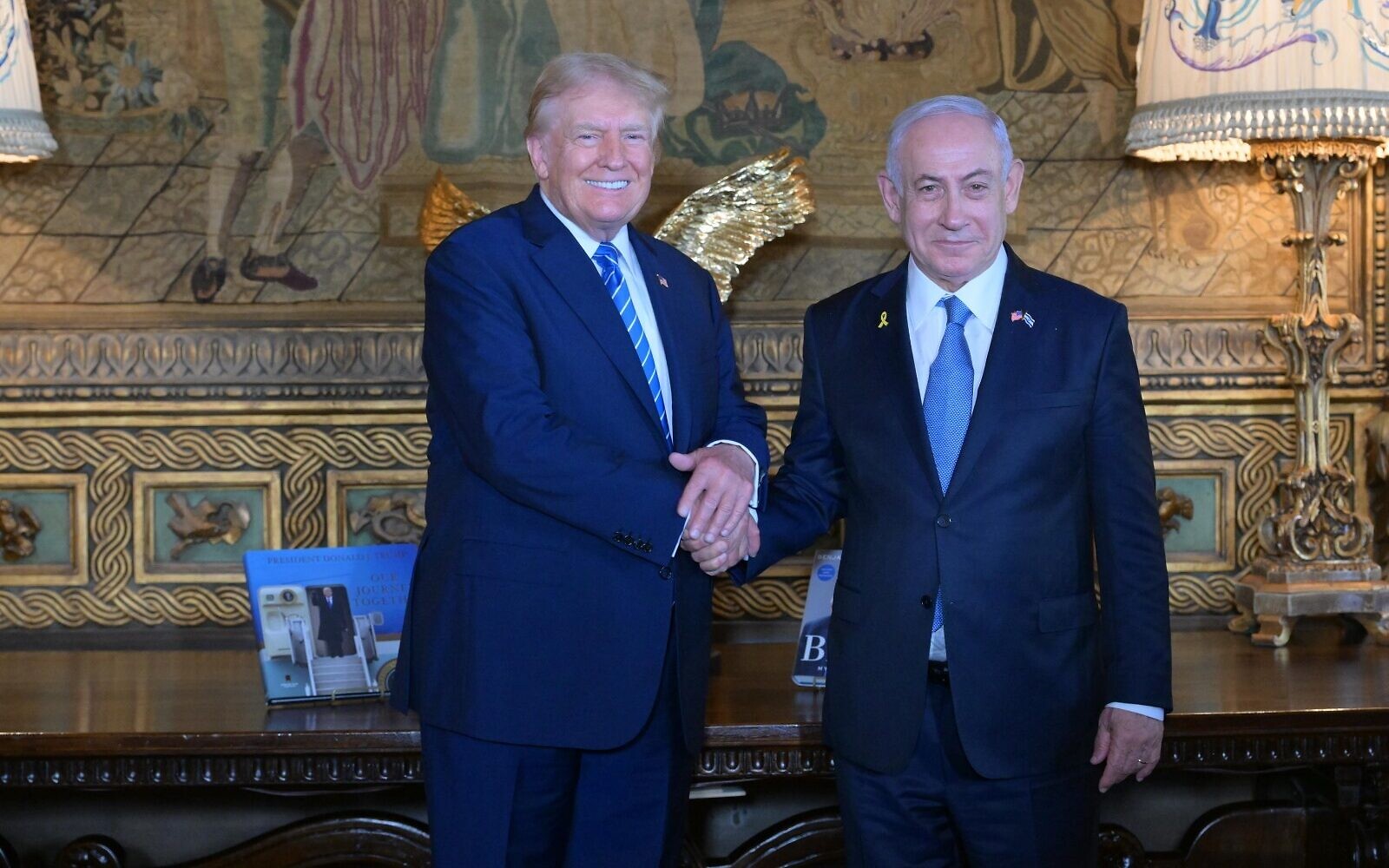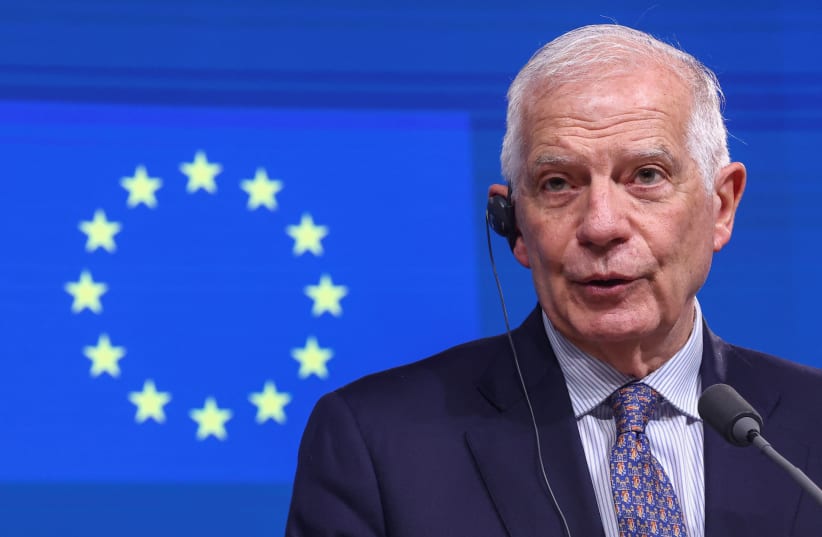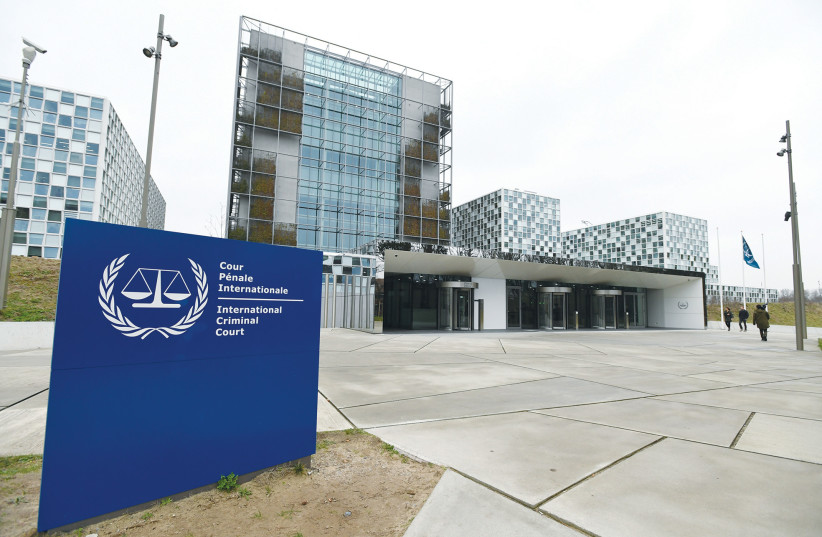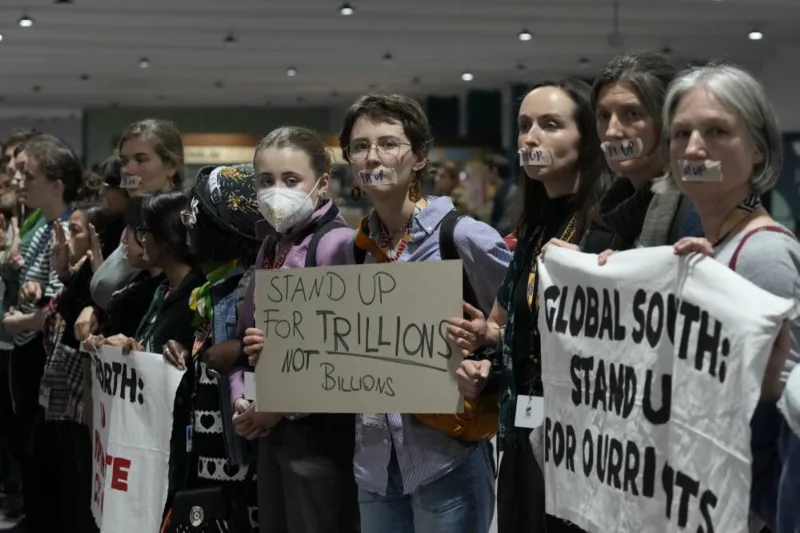Philippine VP threatens to have country's president assassinated
'I've given my order, If I die, don't stop until you've killed them. And he said yes,' the vice president said
The Associated Press
Jim Gomez
Published Nov 23, 2024
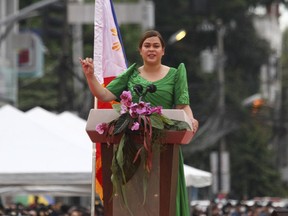
Philippine Vice President-elect Sara Duterte delivers her speech during her oath-taking rites in her hometown in Davao city, southern Philippines, on June 19, 2022. Photo by Manman Dejeto /THE ASSOCIATED PRESS
MANILA, Philippines — Philippine Vice President Sara Duterte said Saturday she has contracted an assassin to kill the president, his wife and the House of Representatives speaker if she herself is killed, in a brazen public threat that she warned was not a joke.
Executive Secretary Lucas Bersamin referred the “active threat” against President Ferdinand Marcos Jr. to an elite presidential guards force “for immediate proper action.” It was not immediately clear what actions would be taken against the vice president.
The Presidential Security Command immediately boosted Marcos’ security and said it considered the vice president’s threat, which was “made so brazenly in public,” a national security issue.
The security force said it was “coordinating with law enforcement agencies to detect, deter, and defend against any and all threats to the president and the first family.”
Marcos ran with Duterte as his vice-presidential running mate in the May 2022 elections and both won with landslide victories on a campaign call of national unity.
The two leaders and their camps, however, rapidly had a bitter falling-out over key differences, including in their approaches to China’s aggressive actions in the disputed South China Sea. Duterte resigned from the Marcos Cabinet in June as education secretary and head of an anti-insurgency body.
Like her equally outspoken father, former President Rodrigo Duterte, the vice president became a vocal critic of Marcos, his wife, Liza Araneta-Marcos, and House Speaker Martin Romualdez, the president’s ally and cousin, accusing them of corruption, incompetence and politically persecuting the Duterte family and its close supporters.
Her latest tirade was set off by the decision by House members allied with Romualdez and Marcos to detain her chief of staff, Zuleika Lopez, who was accused of hampering a congressional inquiry into the possible misuse of her budget as vice president and education secretary. Lopez was later transferred to a hospital after falling ill and wept when she heard of a plan to temporarily lock her up in a women’s prison.
In a pre-dawn online news conference, an angry Sara Duterte accused Marcos of incompetence as a president and of being a liar, along with his wife and the House speaker, in expletives-laden remarks.
When asked about concerns over her security, the 46-year-old lawyer suggested there was an unspecified plot to kill her. “Don’t worry about my security because I’ve talked with somebody. I said, if I’m killed, you’ll kill BBM, Liza Araneta and Martin Romualdez. No joke, no joke,” the vice president said without elaborating, and using the initials that many use to call the president.
“I’ve given my order, If I die, don’t stop until you’ve killed them. And he said yes,” the vice president said.
Under the Philippine penal code, such public remarks may constitute a crime of threatening to inflict a wrong on a person or his family, and is punishable by a jail term and fine.
Amid the political divisions, military chief Gen. Romeo Brawner issued a statement with an assurance that the 160,000-member Armed Forces of the Philippines would remain nonpartisan “with utmost respect for our democratic institutions and civilian authority.”
“We call for calm and resolve,” Brawner said. “We reiterate our need to stand together against those who will try to break our bonds as Filipinos.”
Philippines boosts security after VP's assassination threat against president
November 23, 2024

Philippine Vice President and Education Secretary Sara Duterte speaks during an economic briefing following President Ferdinand Marcos Jr's first State of the Nation Address, in Pasay City, Metro Manila, Philippines, July 26, 2022. REUTERS/Lisa Marie David/File Photo
Summary
VP says she would have Marcos assassinated if she were killed
Thinking, talking is different from doing it - vice president
Duterte's comments unlikely to affect her political support -political analyst
MANILA, Nov 23 (Reuters) - Philippine security agencies stepped up safety protocols on Saturday after Vice President Sara Duterte said she would have President Ferdinand Marcos Jr assassinated if she herself were killed.
In a dramatic sign of a widening rift between the two most powerful political families in the Southeast Asian nation, Duterte told an early morning press conference that she had spoken to an assassin and instructed him to kill Marcos, his wife, and the speaker of the Philippine House, if she were to be killed.
"I have talked to a person. I said, if I get killed, go kill BBM (Marcos), (first lady) Liza Araneta, and (Speaker) Martin Romualdez. No joke. No joke," Duterte said in the profanity-laden briefing. "I said, do not stop until you kill them, and then he said yes."
She was responding to an online commenter urging her to stay safe, saying she was in enemy territory as she was at the lower chamber of Congress overnight with her chief of staff. Duterte did not cite any alleged threat against herself.
The Presidential Security Command said it had heightened and strengthened security protocols. "We are also closely coordinating with law enforcement agencies to detect, deter and defend against any and all threats to the president and the first family," it said in a statement.
Police Chief Rommel Francisco Marbil said he had ordered an immediate investigation, adding that "any direct or indirect threat to his life must be addressed with the highest level of urgency".
The Presidential Communications Office said any threat to the life of the president must always be taken seriously.
However, Duterte told reporters on Saturday afternoon: "Thinking and talking about it is different from actually doing it," adding there was already a threat to her life. "When that happens, there will be an investigation on my death. The investigation on their deaths will be next."
POLITICAL SUPPORT
Her strong comments probably will not dent her political support, said Jean Encinas-Franco, a political science professor at the University of the Philippines. "If anything, this type of rhetoric brings her even closer to what her father's supporters liked about him."
The daughter of Marcos' predecessor as president, Duterte resigned from the Marcos cabinet in June while remaining vice president, signalling the collapse of a formidable political alliance that helped her and Marcos, son and namesake of the late authoritarian leader, to secure their 2022 electoral victories by wide margins.
Speaker Romualdez, a cousin of Marcos, has slashed the vice presidential office's budget by nearly two-thirds.
Duterte's outburst is the latest in a series of startling signs of the feud at the top of Philippine politics. In October, she accused Marcos of incompetence and said she had imagined cutting the president's head off.
The two families are at odds over issues including foreign policy and former President Rodrigo Duterte's deadly war on drugs.
In the Philippines, the vice president is elected separately from the president and has no official duties. Many vice presidents have pursued social development activities, while some have been appointed to cabinet posts.
The country is gearing up for mid-term elections in May, seen as a litmus test of Marcos' popularity and a chance for him to consolidate power and groom a successor before his single six-year term ends in 2028.
Past political violence in the Philippines has included the assassination of Benigno Aquino, a senator who staunchly opposed the rule the elder Marcos, as he exited his plane upon arrival home from political exile in 1983.
Reporting by Neil Jerome Morales; Editing by William Mallard and David Holmes


